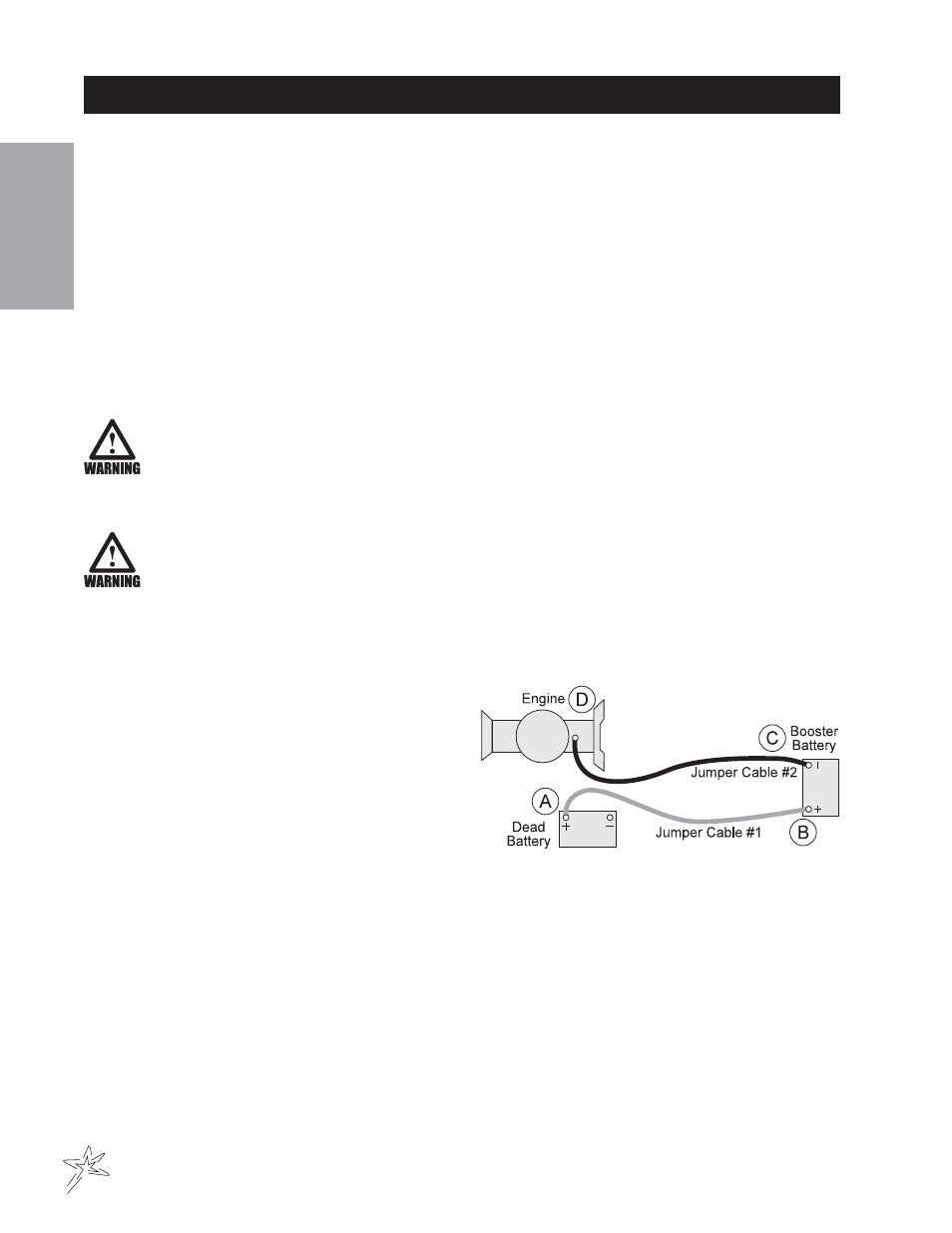Battery – Smithco Sweep Star 48H Operator Manual (2013) User Manual
Page 16

14
Englsih
PARTS MANUALS AVAILABLE ONLINE AT smithco.com
BATTERY
BATTERY
Batteries normally produce explosive gases which can cause personal injury. Do not allow flames, sparks or any
ignited object to come near the battery. When charging or working near battery, always shield your eyes and
always provide proper ventilation.
Battery cable should be disconnected before using “Fast Charge”.
Charge battery at 15 amps for 10 minutes or 7 amps for 30 minutes. Do not exceed the recommended charging
rate. If electrolyte starts boiling over, decrease charging.
Always remove grounded (-) battery clamp first and replace it last. Avoid hazards by:
1. Filling batteries in well-ventilated areas.
2. Wear eye protection and rubber gloves.
3. Avoid breathing fumes when electrolyte is added.
4. Avoid spilling or dripping electrolyte.
Battery Electrolyte is an acidic solution and should be handled with care. If electrolyte is
splashed on any part of your body, flush all contact areas immediately with liberal amounts
of water. Get medical attention immediately.
JUMP STARTING
Use of booster battery and jumper cables. Particular care should be used when connecting a
booster battery. Use proper polarity in order to prevent sparks.
To jump start (negative grounded battery):
1. Shield eyes.
2. Connect ends of one cable to positive (+)
terminals of each battery, first (A) then (B).
3. Connect one end of other cable to negative (-)
terminal of "good" battery (C).
4. Connect other end of cable (D) to engine block
on unit being started (NOT to negative (-)
terminal of battery)
To prevent damage to other electrical components on
unit being started, make certain that engine is at idle
speed before disconnecting jumper cables.
TOWING
When it is necessary to move the Sweep Star 48 without engine running, the bypass valve built into hydrostatic
pump must be “open” by turning it counterclockwise. An “open” valve allows fluid to pass through the wheels
freely. When normal, driven, operation is desired, valve should be closed by turning it clockwise. Failure to
“close” the valve with engine running means no power to wheels. Tow slowly. 2 m.p.h. or less.
The bypass valve is a
3
/
8
diameter shaft with a
11
/
64
hole for inserting something for leverage so you can turn it.
On the high lift it is on the top of the hydrostatic. On the ground level dump it is on the bottom of the hydro-
static.